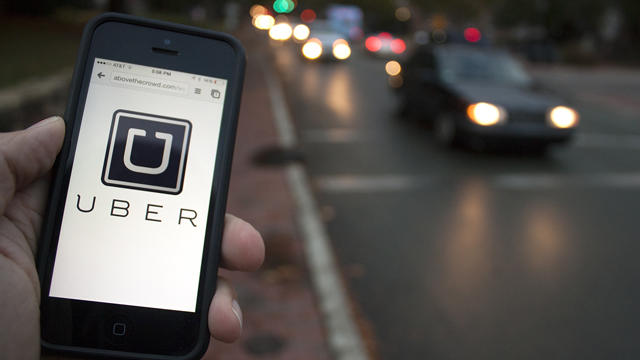Ridesharing Companies Are Officially Legal in Brampton
Published June 28, 2018 at 5:38 pm

More than two years after Uber and other ridesharing services were asked to suspend operations in Brampton, Brampton City Council has approved a new By-law allowing them to legally operate in the c
More than two years after Uber and other ridesharing services were asked to suspend operations in Brampton, Brampton City Council has approved a new By-law allowing them to legally operate in the city.
It’s true that officially, operations were suspended, and drivers technically couldn’t operate under services like Uber – and the new Lyft – as of February 2016 in Brampton.
Now, the City has amended the Mobile Licensing By-law to create a new Personal Transportation Company (PTC) vehicle licence category.
Under the PTC rule, Uber and Lyft can now legally operate in Brampton.
Ridesharing companies were under fire for public safety and consumer protection rules in several cities, including Mississauga and Brampton here in the Greater Toronto Area.
The Uber and Lyft apps weren’t regulated, however, and it’s true that drivers were still operating in Brampton – so if you’ve been in an Uber in the past few months, you’re not alone. Uber was never forced to comply with the regulation, and back in 2016, the ask was to suspend operations “in a show of good faith.”
In Brampton and surrounding cities that asked ridesharing companies to suspend services, the big issue came down to taxi services vs. Uber services. Taxi drivers were asked for background checks, for instance, while there were no strict regulations when it came to Uber drivers.
“Staff began a review of the Mobile Licensing By-law as a means of ensuring the needs and interests of customers, the taxi industry and PTCs were balanced,” reads a recent statement from the City of Brampton.
“The review included comprehensive stakeholder engagement and benchmarking other municipalities for best practices as consideration in amending the By-law.”
As of June 2018, PTCs must collect driver and vehicle information and vet all vehicles to ensure they meet the By-law requirements.
That includes a criminal background check as well as a driver record check.
“PTCs are required to provide proof of insurance, and must notify the City of any changes to their policies,” reads the statement.
“Should a PTC driver have their own commercial insurance policy, a PTC is required to ensure it is valid at all times while a driver is using the app.”
Here are the rules for vehicles associated with a PTC. They must:
- Be a maximum of seven years’ old
- Have a trunk capacity to accommodate a wheelchair or other mobility devices
- Display an identifier as approved by the Licence Issuer
- Be listed on a valid identification card issued by a PTC, which is to include insurance coverage
There have been some issues in Brampton around rates – such as the unpopular surge pricing where rates skyrocket in response to factors like increased demand for rides – so now, PTCs are required to inform customers of rates, including any applicable surge pricing, and provide an estimated of the total cost of the trip is requested by a customer.
PTCs are also required to list rates on their webpage and give customers receipts with a breakdown of charges. So you might see some changes on your next Uber receipt.
“The licensing of ride-sharing companies will allow for increased competition and innovation amongst Brampton’s private transportation industry, and will help meet the transportation needs of the city’s young, technologically-savvy and rapidly-expanding resident populations in a safe manner,” reads the statement.
PTCs are also set to be monitored by City staff. Staff are slated to report back to Council in summer 2019 with any adjustments required to the licensing schedule.
What do you think of the new rules?
insauga's Editorial Standards and Policies advertising





